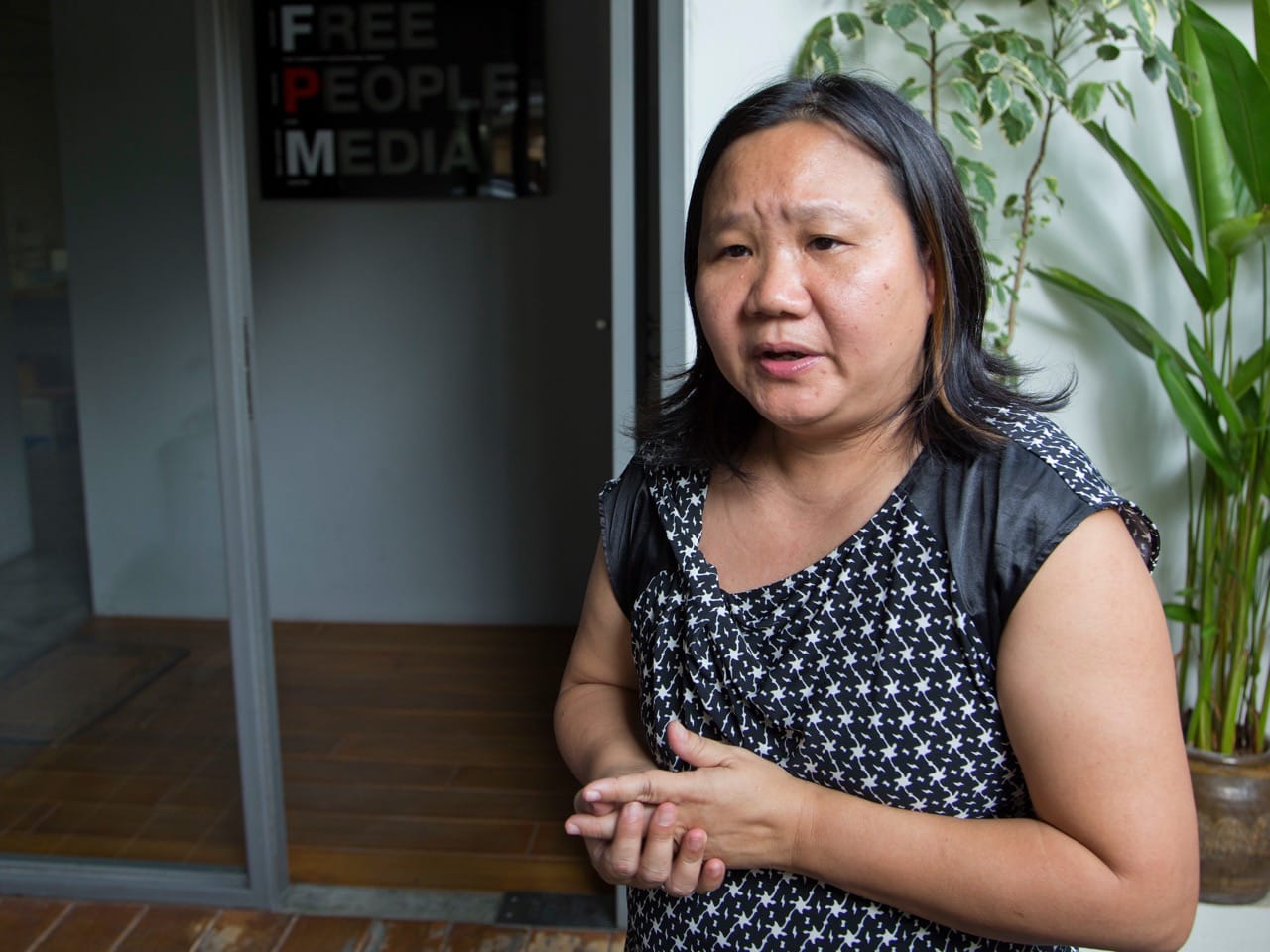Online news site reporter becomes one of several arrested this month for violating Article 61 of the 2016 Referendum Act.
This SEAPA op-ed was originally published on seapa.org on 12 July 2016.
Journalist Thaweesak Kerdpoka’s arrest on Sunday [10 July 2016] should be a cause for worry for members of the Thai media covering the referendum.
Online news site Prachatai reporter Thaweesak was arrested, along with three others, on 10 July for violating Article 61 of the 2016 Referendum Act. Another person was also arrested for the same violation later that day.
The police arrested the group after conducting a search of their car and found copies of a booklet produced by the New Democracy Movement (NDM), a group campaigning against the military junta in power in Thailand since May 2014. Police also found “Vote No” campaign leaflets, and other materials such as loudspeakers and books.
The group was not actually conducting any campaign activity at the time of the arrest. They were about to return to Bangkok after visiting 18 members of the NDM who were reporting to Ratchaburi police in connection with similar charges of violating Article 61.
Article 61 prohibits publishing or distributing content about the draft constitution which deviates from the facts, contains rude, violent and inciting language, or threatens to discourage voters from participating in the referendum or to vote for or against the constitution
Violations of the clause carry a maximum penalty of 10 years in jail, a 200,000 baht (approx. 5,700 USD), and loss of electoral rights (to vote and be voted) for up to five years.
The five arrested – Thaweesak, Pakorn Areekul, Anucha Rungmorakot, Anan Loked and Phanuwat Songsawadchai – were released the following day after a provincial court granted bail at 140,000 Thai baht (approximately 4,000 USD) for each of the detainees.
The incident points to the absurdity of the Referendum Act’s Article 61 and its enforcement by authorities. The article has been criticised by human rights defenders and legal experts as against the right to freedom of expression since public campaigns or peaceful assemblies either in favour or against the constitution should be the right of the people and should not be limited by the referendum act.
In practice, the article is applied only to opponents of the draft constitution, and ignores, for instance, a massive government campaign on public broadcast and print media, and by 300,000 campaign volunteers, in effect for the draft’s approval on 7 August.
The five should not even have been arrested for their ‘offence’. Distribution, let alone mere possession, of “Vote No” materials were well within their rights to expression of their opinion, and to actively participate in politics.
Furthermore, Thailand’s Election Commission has said that the leaflets have not been declared illegal under the 2016 Referendum Act. However, the Constitutional Drafting Committee did say the NDM booklet contained inaccurate information about the constitution that could convince people to go against the constitution. But there is no conclusion whether to take legal action against those who published it.
While all five face the same charge, Thaweesak’s case is distinct from the four others arrested.
It is important to highlight that Thaweesak is a reporter from online news website Prachatai who is covering the referendum. He rode with the trio from Bangkok to cover the case of 18 NDM members reporting to the police.
Despite identifying himself as a reporter, police still arrested Thaweesak. They said he did not have a press identity card and took part in the visit by NDM activists.
It would have been quite easy for the police to verify Thaweesak’s claims on the spot by simply going to the Prachatai website and looking at stories with his by-line, or by calling any Prachatai editor. But despite a confirmation from Election Commissioner Somchai Srisutthiyakorn that Thaweesak is a reporter, police insisted on his arrest and detention pending investigation.
Police also claimed that [the fact that] Prachatai is suspected of collaborating with the NDM to publish the anti-constitution booklets was grounds for taking action. [Update 15:00 p.m., 12 July: As we finalise this piece, plainclothes police searched the Prachatai offices looking for links to the online news site’s alleged publication of the anti-constitution documents.]
This incident demonstrates that the Referendum Act of 2016, especially Article 61, does have an impact on press freedom.
By arresting Thaweesak, the police prejudged him as a part of a movement against the constitution. His arrest undermines the work of journalists, as it suggests that even reporting about “Vote No” campaigns is not allowed under the controversial Article 61.
Amid a tightly controlled media and political environment, the media plays a very important role in keeping the public informed about all aspects of the document that will serve as the framework of their country’s governance. Unhampered media reportage of different views and activities is essential for Thai citizens to attain a balanced view about the draft charter’s merits and flaws, in order to vote according to their conscience.
In the lead up to 7 August, Thai authorities must show that the media and the space for debate around the referendum is free and fair. They can begin opening up the space for discussing the draft charter by dropping charges against Thaweesak and the four others arrested.



